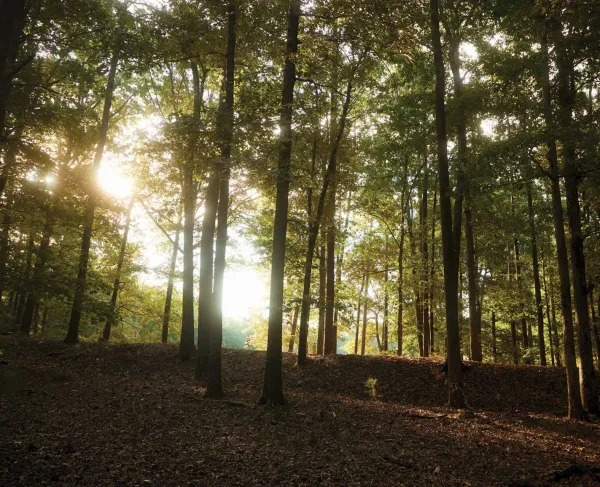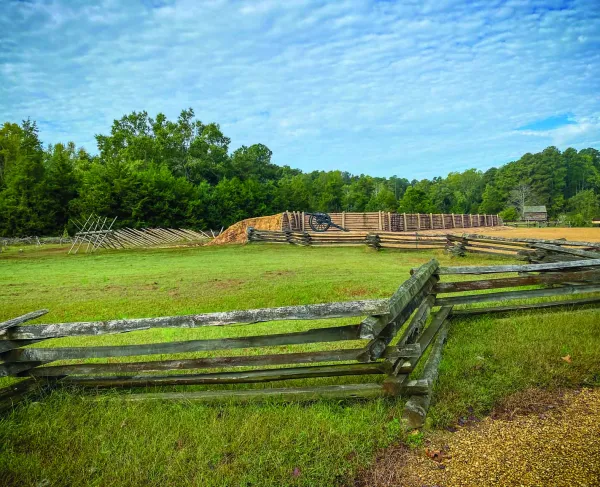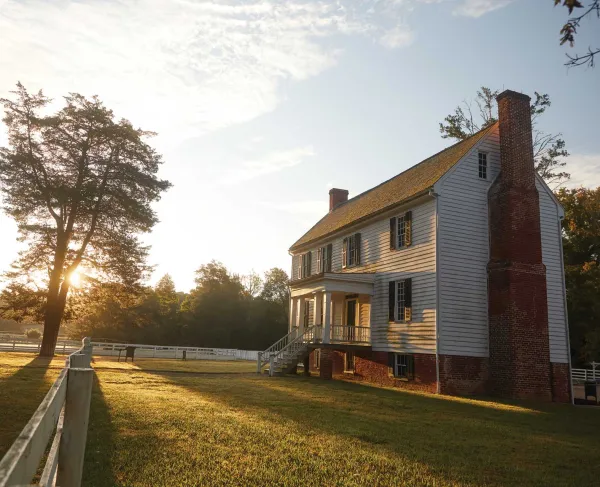Book: Echoes from the Boys of Company H
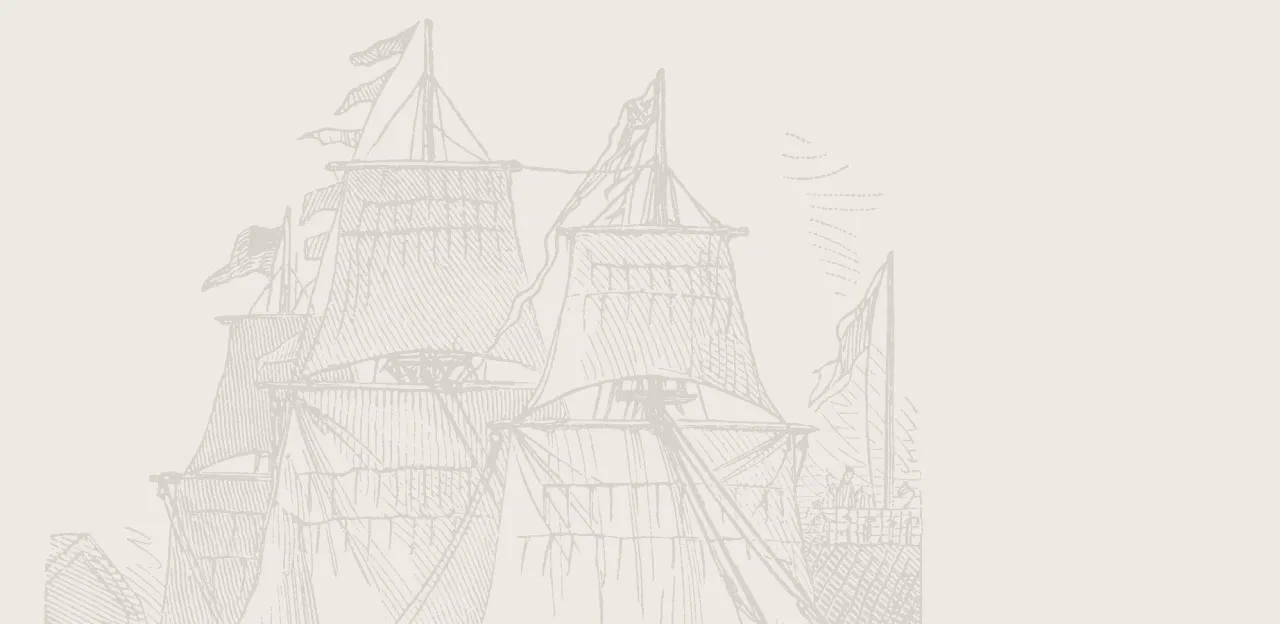
The Civil War Preservation Trust recently sat down with author Neal Wixson to talk about his new book, Echoes from the Boys of Company H, an account about soldiers from the
100th New York Volunteer Infantry Regiment.
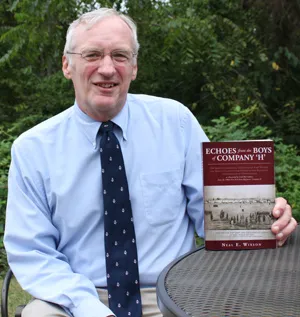
Civil War Trust: What motivated you to write this book?
Neal Wixson: My great-grandfather, Thomas Maharg, was a member of Company H and returned from the war with souvenirs which were proudly on display at my grandfather’s house. As a member of the Veteran’s Association of the regiment, due to his activities in the group, his lineal descendants were granted perpetual memberships in the organization. The book was my journey to get to know my great-grandfather and his comrades, not only through their civil war participation but also how they lived the rest of their lives and preserved their recollections of their shared wartime services.
How can the perspectives of individual soldiers add to our understanding of the Civil War? What do they tell us about Northern views concerning slavery, secession, and preserving the Union?
NW: It is important to put the soldier’s perspectives into context. In school, they learned about the social and economic differences between the North and South.The fight between Slave and Non-slave states proponents raged and the eminent expansion of the country and ultimate admittance of new states to the union made it a pressing issue. Minstrel shows presented blacks in a denigrating manner and Uncle Tom’s Cabin, the novel by Harriett Beecher Stowe, portrayed their evils of slavery and was widely read. Frederick Douglas’s book, My Bondage and My Freedom, was published and added to the literature of slavery opponents. The “boys’ probably wondered how a single nation could succeed with such divergent cultures. However, they had never ventured out of the city of Buffalo, New York and the spirit of adventure must have embraced them. Patriotism and nationalism were part of their Victorian time. All the states owed a duty to remain a part of the Union.
All the letters come from soldiers in the same company. Was it typical for units to have so many effective writers?
NW: Letters were the sole means of staying in touch with family and friends. The receipt of a letter was the highpoint of one’s day, whether the recipient was a soldier or a family member. Soldiers who were literate offered to write letters from those soldiers who were not literate. Our letter writers had just graduated from normal school and had developed writing skills. You can see how their skills varied between the flowery letters of Edward Cook to the run on sentences of Alfred Lyth.
Were historians familiar with these letters?
NW: The letters that are contained in the book are all unpublished. Consequently, they are new material for historians and will add to the current effort of historians to tell the social history of the civil war. In essence, the soldiers are telling their own stories.
What makes this publication a unique read for Civil War enthusiasts?
NW: This book focuses on the lives of a few soldiers in one company. It traces these men from enlistment to death and they relate their experiences from as soldiers in camp, battle and prison. It is a story about young men who evolve from idealistic, adventure-seeking individuals to seasoned soldiers. The book is unique since it represents the differing perspectives of the writers on common events. While their experiences, for the most part, were identical, it is interesting to see different “takes” on the same events. Their reports vary do to the different interests of the writer and their assessment of importance to the reader. They also silently express the isolation and loneliness of each writer. The book also follows the soldiers into the post war years as they adjust back into the “civil life.” Through the detailed minutes of the many meetings of their Veteran’s Association, their speeches and activities give the readers a perspective as to their views on the war years and years later. The readers also learn of the careers of the “boys.”
Can you talk more about your personal connection to these letters?
NW: There are two letters that stand out to me. One, in September, 1863, Thomas Maharg received a long and detailed letter about the death of his father. Another letter of Alfred Lyth revealed that Thomas was told of his father’s death prior to receiving the letter from his brother. In the letter, his brother searches for understanding of the impact of their father’s death and how to carry on. Another letter was sent to Thomas Maharg by Alfred Lyth from Andersonville prison. It was sent to Alfred’s parents so that they could forward it on to Thomas. The letter was misplaced and found after the war. It was read at one of the meetings of the Veteran’s Association and then presented to Thomas in an emotional ceremony.
Can you explain how the soldiers' viewpoints changed throughout the war? What may have caused this alteration?
NW: The feelings, observations and beliefs were poured into their letters. Their songs encompassed their beliefs as to sanctity of their cause. As they ventured onto “secession soil” they recorded their observations on climate, agriculture towns, plantations and blacks. Initial prejudices of blacks were softened by contact and, as the war continued, soldiers talked about the negro’s amiability, religion, intelligence and eagerness to learn. Ultimately, at the Assault on Battery Wagner, they were impressed as to their performance under battle conditions. Their views of the war took on more religious tones, knowing that God was on their side. Their views on death changed dramatically. From the Victorian culture view of death and dying being in the natural order of aging events, the soldiers developed a more fatalistic belief that they would die when it was their time. However, they continued to be upset as to the callousness in the treatment of those who died. To see hands or faces of hastily buried dead remained the soldiers of their own mortality and caused them to focus of the certainty of a heavenly reunion with their loved ones.
What research challenges did you face in putting together this book? How extensive was the research process?
NW: Many of the letters and diaries were in either historical societies or libraries. They were all original and were very hard to read and in fact the paper was deteriorating. I arranged for the letters to be microfilmed so that they could be preserved for future generations. I was able to use the regimental histories of the 100th Regiment units that were also on Morris Island which were published in the late 1880’s as well as other contemporary books and documents to corroborate and to add to understanding of the events. I also used sources at the Library of Congress, Harpweek in Connecticut and University of California at Santa Barbara, and the Buffalo and Erie County Public Library and the Buffalo and Erie County Historical Society.
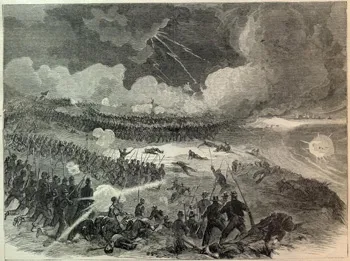
Can you speak more about the boys of Company H's involvement during the war. What engagements did they fight in?
NW: The 100th infantry Regiment was initially involved in the Siege of Yorktown and the Seven Days Battle, Virginia. In 1863, they were active in the Siege of Battery Wagner and the Bombardment and Fort Sumter and Charleston, S.C. In 1864, they participated in the Operations against Petersburg and Richmond, Va., including engagements at Port Warthall, Proctor’s Creek, Drewry’s Bluff and Bermuda Hundred. They followed with the Assault on Petersburg, and engagements at Deep Bottom, Coffins Farm, Fair Oaks and Assault on Fort Gregg. In 1865, they were a part of the Appomattox Campaign and the Appomattox Courthouse. After Lee’s surrender, they remained in Richmond, Virginia until August, 1865.
Is there a particular audience this book is designed to appeal to?
NW: The book appeals to those civil war enthusiasts that want to get beyond the strategies of the officers. The “real story” of the war is now being uncovered through letters, diaries and noted written by young soldiers. Through these sources, they are able to tell their own stories. They comment on all the events surrounding them i.e. camp life, funerals, executions, death, games, religion, drills and warfare.
Any plans to publish future Civil War books?
NW: I am working on a manuscript which will also be based upon civil war letters of common soldiers. However, it will explore the psychological changes in the soldiers as their views on death, religion, home, southerners and politics change as the war forges on for three years.
Buy the Book: "Echoes From the Boys of Company H" is available from our Civil War Trust-Amazon Bookstore
